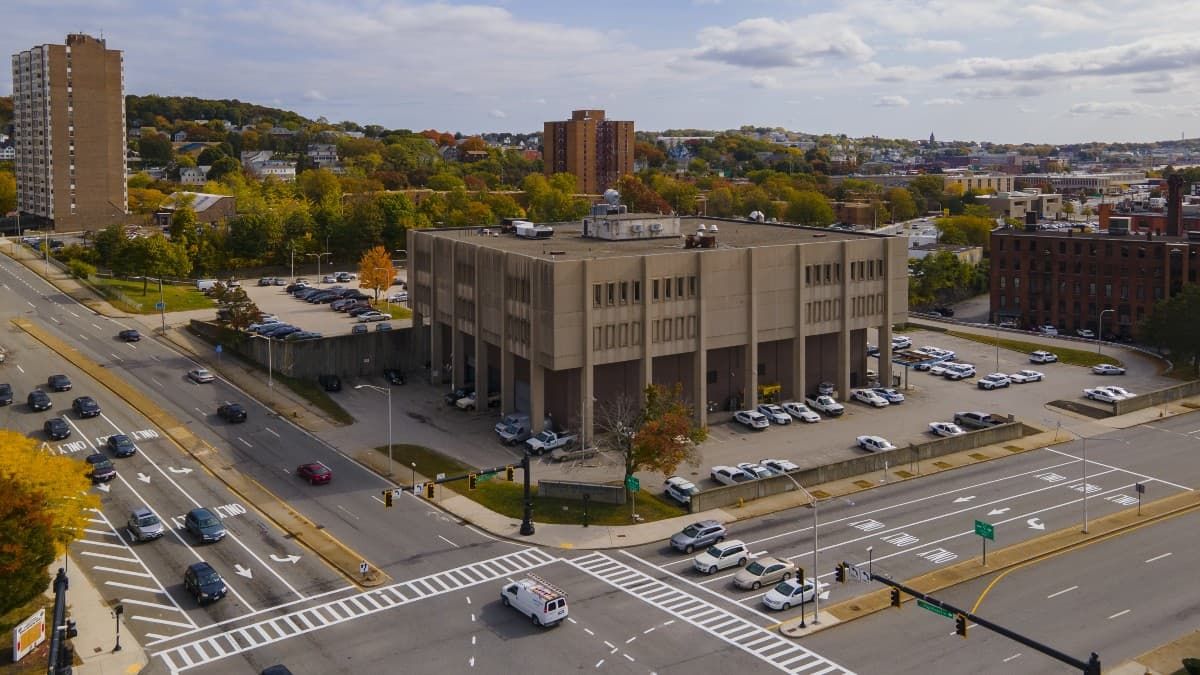WORCESTER – The Worcester City Council will receive an Unmanned Aircraft System (UAS) policy draft on Tuesday night with seven revisions from the policy presented by the Worcester Police Department on June 7.
Worcester Police Chief Steven Sargent says in an accompanying memo that it is the final proposal to initiate the UAS program.
City council will discuss the newest proposal on Tuesday, June 14, at its meeting beginning at 6:30 PM.
Virtual Attendee Call-In Information:
City Council Zoom Link
City Council Zoom Phone Number:(929) 205 6099
City Council Zoom Access Code: 917 2757 4825
A UAS is commonly called an unmanned drone.
In an interview with “Talk of the Commonwealth” on Tuesday morning, Acting City Manager Eric Batista said if the city council does not vote to support the policy, he will not more forward with implementation of a UAS with the Worcester Police Department. The decision is an executive decision and Batista could move forward without council approval.
The discussion on the UAS begins at 4:40.
According to a memo from Batista to city council, a meeting took place with Policy Counsel, Technology for Liberty Program at the American Civil Liberty Union (ACLU) Emiliano Falcon-Morano, Chief Sargent, Deputy Chief of Police Paul Saucier, Batista, and Assistant City Manager Nicole Valentine. That discussion, which Batista’s memo described as productive, led to the changes in the draft policy.
Falcon-Morano, in a letter to city councilors prior to the June 7 city council meeting, provided several objections to the previous draft policy presented by the police department.
See the updates to the policy below. The updated policy will be presented to the City Council on Tuesday night at 6:30 PM.
Privacy Concerns
The updated draft made two changes to privacy related provisions in the policy.
Change 1
Falcon-Morano’s first objection was to section six of the draft, where the previous draft of the policy said:
“A UAS shall not be intentionally used for images and/or video in a criminal investigation at any location or property where a person has a reasonable expectation of privacy unless:”
Falcon-Morano, in his letter, argued:
“The intent of the officers is irrelevant. The language should be changed to ensure that if the police plan to use a drone to conduct surveillance pursuant to a criminal or intelligence investigation, they must obtain a warrant first, except in those situations where obtaining a warrant would be impracticable, i.e., there are exigent circumstances.”
The new policy draft removes the word “intentionally.”
Change 2
Falcon-Morano also wrote:
“The policy should specify that the warrant or the court order must be issued only after the police have demonstrated that they have probable cause to believe the use of a drone for surveillance will produce evidence of a crime.”
Item number one of the privacy section formerly read:
“A warrant or court order has been approved for the search of the property;”
The new draft removes “court order” and now only refers to a warrant.
The Fourth Amendment to the U.S. constitution protects Americans from unreasonable search and seizure. To conduct a search, law enforcement must obtain a warrant, except in certain situations defined as “exigent circumstances. Probable cause is a required element for obtaining a warrant.
“Exigent Circumstances”
Falcon-Morano wrote that exigent circumstances are too broadly defined in the previous draft and said:
“The language of this section should be narrowed to limit the cases of possible exigent circumstances to “those situations where it would be impracticable to obtain a warrant . “
The new draft adds a definition of exigent circumstances:
“Exigent Circumstances Legal Definition – Merriam-Webster: circumstances that are of such urgency as to justify a warrantless entry, search or seizure by police when a warrant would ordinarily be required.”
Restrictions on Use
The new policy draft also make three changes in areas related to restrictions on use of the UAS.
Change 1
The previous UAS policy draft, in section nine, number four, said:
“UAS-recorded data will not be collected disseminated or retained solely for the purpose of monitoring activities protected by the US Constitution, such as the First Amendment’s protection of religion, speech, press, assembly, and redress of grievances (e.g., protests, demonstrations).”
Falcon-Morano wrote:
“The use of the word “solely” here leaves open the possibility that drone footage can be used and shared in a broad range of situations related to a person’s protected speech , as long as one additional factor is involved.”
He added:
“The language here should be more precise and stipulate that the WPD will never use drones to monitor people exercising their First Amendment rights to assemble, petition the government, exercise their religion, or protest.”
The newest draft of the policy removed the world “solely.”
Change 2
Section nine, number five, previously read:
“Collection, use, dissemination, or retention of UAS-recorded data should not be based soley on individual characteristics (e.g., race, ethnicity, national origin, sexual identity, religion, age, or gender), which is a violation of the law.”
Falcon-Morano wrote:
“The same considerations about the use of the word “solely” apply here, leaving open the possibility that the police are allowed to target someone partially on the basis of a protected characteristic like race. The word “solely” should be stricken .
He also suggested that:
“The language here should be more precise and stipulate that the WPD will never use drones to monitor people exercising their First Amendment rights to assemble, petition the government, exercise their religion, or protest.”
The newest draft version of the policy removes the word “solely.”
Change 3
The policy also adds, “… nor to harass, intimidate or discriminate against any individual or group” to section nine, number 5.
This section now reads:
“Collection, use, dissemination or retention of UAS recorded data shall not be based on individual characteristics (e.g. race, ethnicity, national origin, sexual orientation, gender identity, religion, age, or gender), nor to harass, intimidate or discriminate against any individual or group.”
The new draft also adds that the city manager will receive quarterly reports on deployment of the UAS, in section eight. The city manager pledged to release those reports to the public.
Other Concerns
A consistent concern voiced by advocates for the homeless is the use of drones to track the homeless and encampments that may arise in the city. The policy does not specifically include policy related to homeless individuals after its most recent changes.
In a memo to Acting City Manager Batista accompanying the policy, Chief Sargent says, “The department does not intend to utilize the technology for this purpose. The equipment would only be authorized in emergency situations to gain an aerial perspective.”
Batista echoed that sentiment in his memo to city councilors.
Falcon-Morano also suggested six additions to the policy is his letter to city councilors. Deputy Chief Paul Saucier argued during the city council meeting on Tuesday, June 7, that provisions within the policy already cover these areas.
Falcon-Morano’s letter called for:
- A section stipulating both the permissible and prohibited purposes of the use of drones. Among the prohibited purposes should be tracking homeless people, surveilling people exercising constitutional rights, harassing or intimidating individuals or groups, and conducting personal businesses of law enforcement agents or other public officials.
- A provision incorporating the principle of data minimization . The Draft should direct that all data collected with a drone be the minimum necessary and limited to those places that are essential to complete the objective of the drone mission;
- A provision preventing the use of drones to collect, use, retain, or disseminate data in any manner that would discriminate against persons based upon their ethnicity, race, gender, national origin, religion, sexual orientation, or gender identity, in violation of the law;
- A provision establishing that non – law enforcement agencies shall not be requested to fly missions on behalf of law enforcement agencies that intend to circumvent the warrant requirement mentioned above ;
- An exclusionary rule so that data collected in a manner not consistent with the policy is disallowed as evidence in court, except when it is used to prove that a drone was used against the policy itself ; and
- A provision that mandates periodic reporting of statistics pertaining to the use of drones to the City Manager, the City Council, and the general public. The WPD must also set up an open channel of communication with Worcester residents so that they can file complaints about the misuse or abuse of drones.
The full policy is available here.
A request for comment sent to Falcon-Morano was not returned by the time of publication. This story will be updated if further information becomes available.









